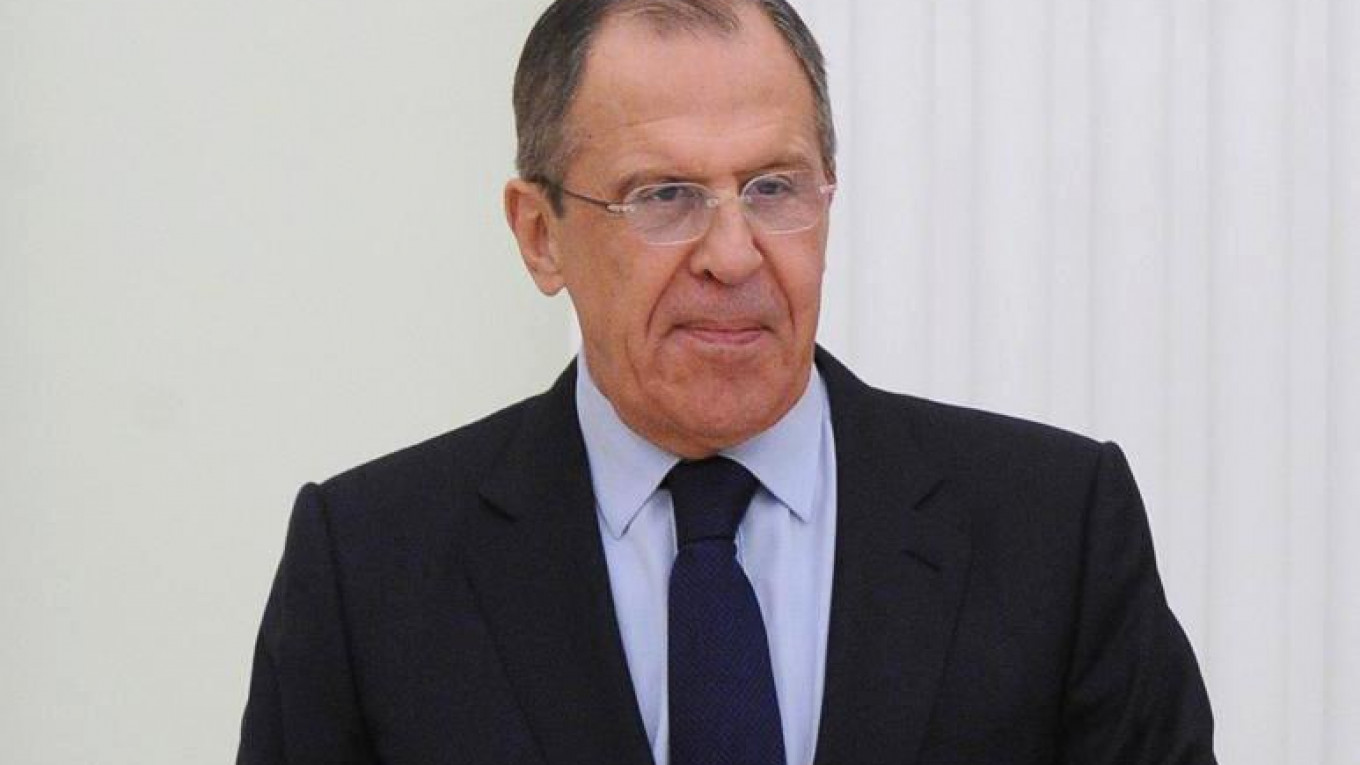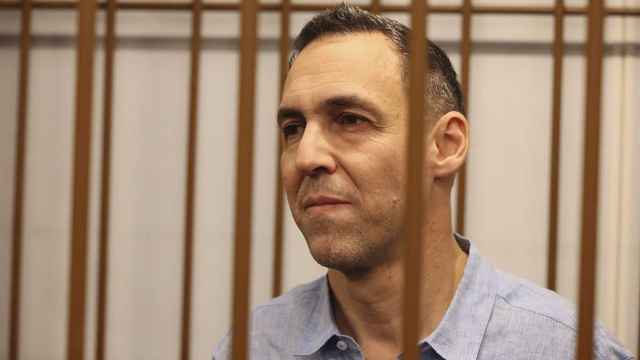Russian Foreign Minister Sergei Lavrov is swearing at people in public again. On Thursday at a meeting with his German counterpart in Hamburg, Lavrov addressed a camera operator for Reuters, asking in English, “What do you want?” before turning away and saying under his breath in Russian “debily,” a word that loosely means “dipshits.”
Video of Lavrov’s outburst was published by the Ukrainian television network Gromadske, but the insult is audible in Reuters’ own footage, as well.
In comments on Facebook, the Foreign Ministry's colorful spokesperson, Maria Zakharova, first denied that Lavrov ever muttered an insult aimed at the Reuters reporters. Then, in another Facebook post roughly two hours later, she seemed to acknowledge the obscene comment, accusing Reuters of leaking the footage in an effort to smear Moscow and win some cheap thrills online.
This is not the first time Lavrov has made headlines for profane language. This October, he responded harshly when questioned about sexists comments made by Donald Trump, revealed during the U.S. presidential election.
Lavrov told CNN, “There are so many pussies around your presidential campaign on both sides that I prefer not to comment.” (He prefaced the statement by pointing out that English is not his native language, and that he was not sure if his words would be considered “decent.”)
In 2008, Lavrov reportedly told the British foreign secretary, “Who are you to fucking lecture me?” when confronted in a phone call about Russia's invasion of Georgia.
In August 2015, Lavrov was caught muttering "fucking morons" (in Russian) during a meeting with Saudi Arabian officials on the dangers of ISIS. He was apparently unaware that his microphone would pick up the remark.
A Message from The Moscow Times:
Dear readers,
We are facing unprecedented challenges. Russia's Prosecutor General's Office has designated The Moscow Times as an "undesirable" organization, criminalizing our work and putting our staff at risk of prosecution. This follows our earlier unjust labeling as a "foreign agent."
These actions are direct attempts to silence independent journalism in Russia. The authorities claim our work "discredits the decisions of the Russian leadership." We see things differently: we strive to provide accurate, unbiased reporting on Russia.
We, the journalists of The Moscow Times, refuse to be silenced. But to continue our work, we need your help.
Your support, no matter how small, makes a world of difference. If you can, please support us monthly starting from just $2. It's quick to set up, and every contribution makes a significant impact.
By supporting The Moscow Times, you're defending open, independent journalism in the face of repression. Thank you for standing with us.
Remind me later.






